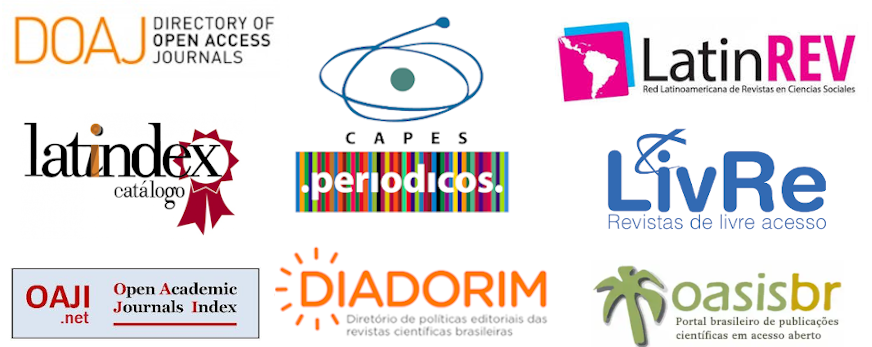The Gulag Archipelago: hybrid narrator and polyphonic structure
DOI:
https://doi.org/10.11606/issn.2317-4765.rus.2024.229544Keywords:
Gulag Literature, The Gulag Archipelago, Polyphony, Solzhenitsyn, TestimonyAbstract
The Gulag Archipelago, by Aleksandr Solzhenitsyn, first published in 1973, exposes the Soviet repressive system through a polyphonic narrative, constructed from over two hundred letters from former zeks and the author's own experience in the Gulags. The work gives voice to those who lived in the camps, establishing a constant dialogue with the official version of Soviet history at the time and constructing historical truth from the testimony of witnesses. This article analyzes how Solzhenitsyn employs polyphony, according to Mikhail Bakhtin's concept, in the construction of an epic novel resulting from an artistic investigative experiment, which relies on a hybrid narrator, both monophonic and polyphonic. Additionally, it explores the role of polyphonic narration in the representation of traumatic events, in light of Walter Benjamin's reflections on the decline of narrative.
Downloads
References
BAKHTIN, Mikhail. Problemas da obra de Dostoiévski. Tradução Sheila Grillo e Ekaterina Américo. São Paulo: Editora 34, 2022.
BENJAMIN, Walter. O Anjo da História. Belo Horizonte: Autêntica, 2021.
BAKHTIN, Mikhail. O Narrador: considerações sobre a obra de Nikolai Leskov. In: Magia e Técnica, Arte e Política: Ensaios sobre literatura e história da cultura. São Paulo: Brasiliense, 1996.
COELHO, Lauro Machado. Apresentação. In: COELHO, Lauro Machado. Anna Akhmatova: antologia poética. Tradução Sheila Grillo e Ekaterina Américo. Porto Alegre: L&PM, 2018.
GRILLO, Sheila. Ensaio Introdutório. In: BAKHTIN, Mikhail. Problemas da obra de Dostoiévski. São Paulo: Editora 34, 2022.
GULLOTA, Andrea. O Gulag e a Literatura de Gulag: um balanço das pesquisas. Estudos Avançados. São Paulo, v. 31, 2017.
GULLOTA, Andrea. Trauma and Self in the Soviet Context: Remarks on Gulag Writings. AvtobiografiЯ. Itália, n.1, p.73-87, 2012.
GULLOTA, Andrea. A new perspective for gulag studies: a gulag press. Studi Slavistici. Florença, v.8, p.95-111, 2011.
KRASNOV, Vladislav. Solzhenitsyn and Dostoevsky: Affinity Through Polyphony: a Study in the Polyphonic Novel. Georgia: The University of Georgia Press, 1980.
MARKSHTEIN, Elizabet. O povestvovatelnoi strukture Arkhipelaga GULAG. Filologicheskie zapiski. Voronezh, v.1, p.91-101, 1993. Disponível em: https://www.solzhenitsyn.ru/o_tvorchestve/articles/works/index.php?ELEMENT_ID=1747&sphrase_id=36373.
NIDERAUER, Silvia; HERMES, Ernani. Uma poética das vozes silenciadas: polifonia e fragmentação em documentário, de Ivan Ângelo. Interfaces. v.11, n.2, p.122-120, 2020. Disponível em: https://revistas.unicentro.br/index.php/revista_interfaces/article/view/6280/4466.
SOLJENÍTSYN, Aleksandr. Arquipélago Gulag um experimento de investigação artística 1918-1956. Tradução Lucas Simone [et al.]. São Paulo: Carambaia, 2019.
SPIVAKOVSKI, Pavel. Polifonicheskaya kartina mira u F.M. Dostoevskogo i A.I. Solzhenitsyna. In: Mezhdu Dvumya Yubileyami 1998–2003. Moskva: Russkiy put, 2005. Disponível em: https://www.solzhenitsyn.ru/o_tvorchestve/articles/works/index.php?ELEMENT_ID=766&sphrase_id=36373.
STRUVE, N.A. Solzhenitsyn A. Intervyu na literaturnye temy s N.A. Struve. Vestnik russkogo khristianskogo dvijeniya. Paris, n. 120, p. 130-158, 1977. disponível em: https://www.rp-net.ru/book/vestnik/
TOKER, Leona. Return from the Archipelago. Indiana University Press, 2000.
TSVETAEVA, Marina. Vivendo sob fogo: confissões. Tradução Aurora Fornoni Bernadini. São Paulo: Martins, 2008.
WERNECK, Arantes Igôr. A palavra e o nada: silêncio, cidade e memória na poesia de Marina Tsvetaeva. Dissertação (Mestrado em Letras) – Universidade Federal de Juiz de Fora, Faculdade de Letras, Programa de Pós Graduação em Letras, 2019.
Downloads
Published
Issue
Section
License
Copyright (c) 2024 Lorena Lopes Silva

This work is licensed under a Creative Commons Attribution-NonCommercial-ShareAlike 4.0 International License.
Authors who publish in RUS agree to the following terms:
a. Authors retain copyright and grant the journal right of first publication with the work simultaneously licensed under a Creative Commons Attribution 4.0 International License (CC BY-NC-SA 4.0) that allows others to share the work with an acknowledgement of the work’s authorship and initial publication in this journal.
b. Authors are able to enter into separate, additional contractual arrangements for the non-exclusive distribution of the journal’s published version of the work (e.g., post it to an institutional repository or publish it in a book), with an acknowledgement of its initial publication in this journal.
c. Authors are permitted and encouraged to post their work online (e.g., in institutional repositories or on their website) prior to and during the submission process, as it can lead to productive exchanges, as well as earlier and greater citation of published work (See The Effect of Open Access).





